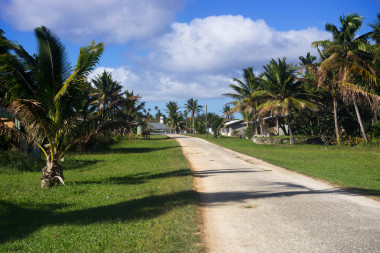The Two-Decade Fight for Two Letters on the Internet: The South Pacific island of Niue says it was cheated out of .nu, a domain that turned out to be very lucrative on the other side of the world
The South Pacific island of Niue is one the most remote places in the world. Its closest neighbors, Tonga and American Samoa, are hundreds of miles away. The advent of the internet promised, in a small way, to make Niue and its 2,000 or so residents more connected to the rest of the world.
In the late 1990s, an American businessman offered to hook up the island to the internet. All he wanted in exchange was the right to control the .nu suffix that Niue was assigned for its web addresses. The domain did not seem as lucrative as .tv — which was slotted to Tuvalu, another South Pacific nation — and the leaders of Niue (pronounced New-ay) signed off on the deal. But the two sides were soon at odds.
Now, after more than two decades of back and forth, the disagreement is finally nearing a resolution in a court of law. Disputes over domain names were not uncommon during the internet’s infancy but experts are hard pressed to recall one that has lasted this long.
It turned out that .nu was, in fact, very valuable. “Nu” means now in Swedish, Danish and Dutch, and thousands of Scandinavians registered websites with that suffix, creating a steady business for Niue’s business partner, Bill Semich.
